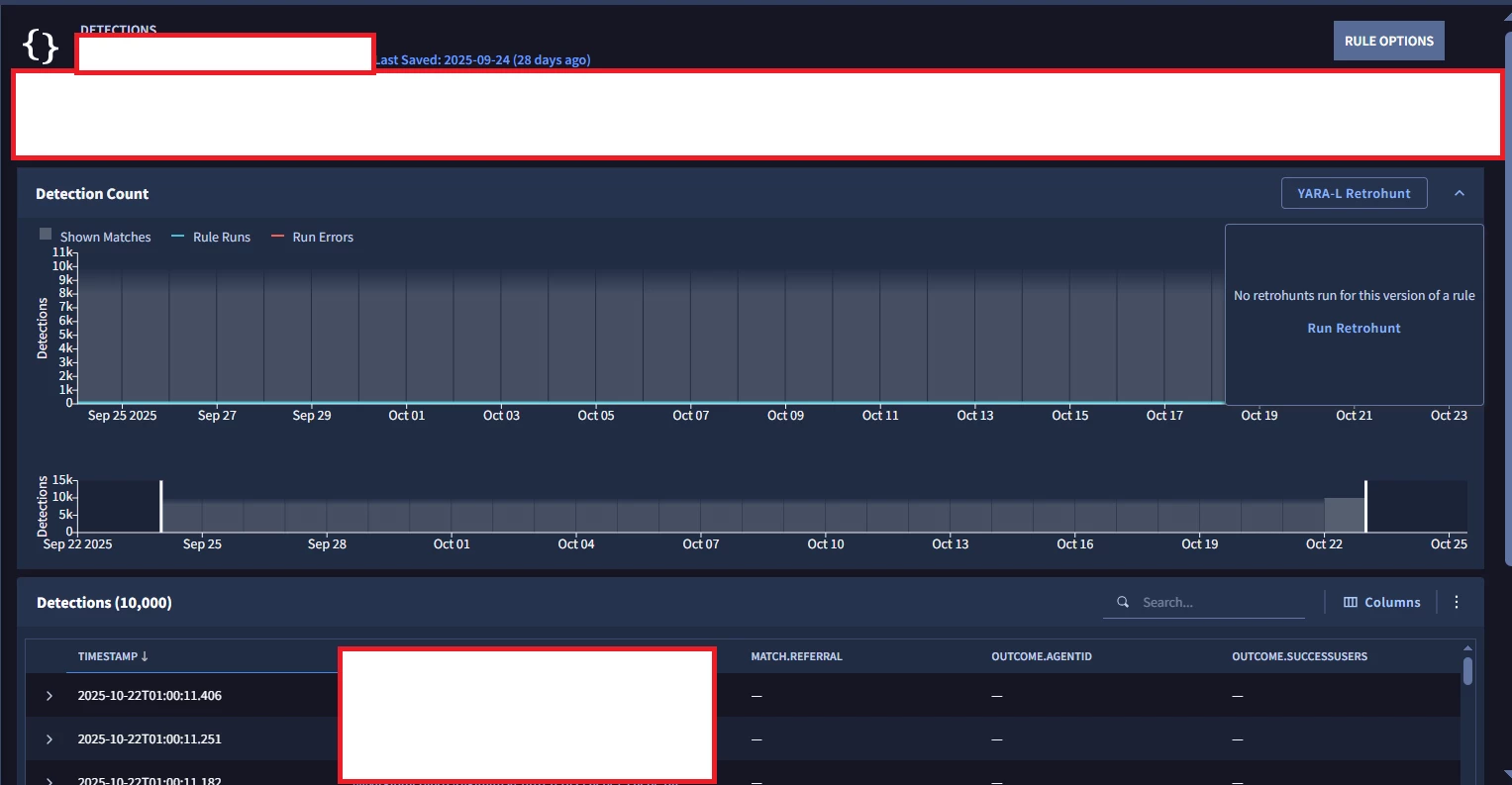when we run a test in a rule editor, and we get a list of few test detections, is it possible to create a case out of them to test or refer for the playbook creation ?
Enter your E-mail address. We'll send you an e-mail with instructions to reset your password.





